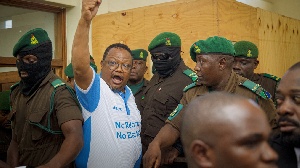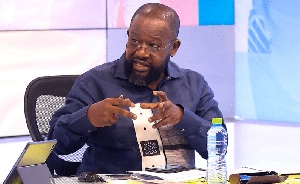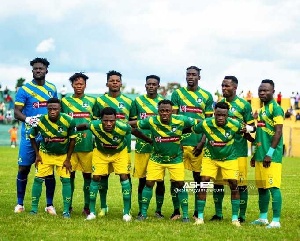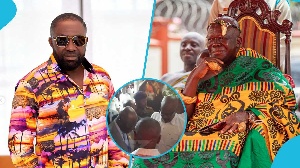Africa News of Friday, 6 June 2025
Source: www.ghanawebbers.com
Africa: Weaponising the Law Against Democracy in Africa
Incumbent presidents and ruling parties in Africa are increasingly bending the law. They aim to entrench their power and silence opposition. This tactic, known as 'lawfare,' includes manipulating presidential term limits and reshuffling the judiciary.
Countries like Zimbabwe, Zambia, Tanzania, the Democratic Republic of the Congo (DRC), and Togo are examples. These actions undermine public trust in democratic institutions. They also create an uneven political playing field.
The African Union (AU) is working to promote good governance. Addressing lawfare is essential to prevent democratic backsliding. Lawfare appears differently across countries but often involves manipulating legal provisions.
This manipulation can include ambiguous laws that favor incumbents or constitutional amendments. For example, Tanzania's electoral commission disqualified the main opposition party ahead of elections. The party was excluded for not signing a new electoral code of ethics.
While compliance with election laws is required, disqualification on this basis lacks constitutional support. This interpretation favored the ruling party and set a concerning precedent.
In Zambia, contradictory court rulings reveal political interests at play. In 2018, then-president Edgar Lungu's first term was deemed not to count toward term limits due to a court decision he influenced. However, in 2024, under a new administration, that ruling was reversed.
This reversal blocked Lungu from running in 2026 and benefited President Hakainde Hichilema instead. The inconsistency in court rulings shows how laws can be manipulated for political gain.
Incumbents often exploit legal loopholes or selectively enforce regulations to neutralize opposition. This makes it hard to detect lawfare and threatens democratic accountability across Africa.
Another form of lawfare involves using constitutional reviews to entrench power while maintaining a facade of legality. Decisions may appear legitimate but often do not align with constitutional principles.
A common pattern includes resetting term limits or altering executive powers to benefit incumbents. In the DRC, President Félix Tshisekedi plans reforms perceived as attempts for a third term bid.
In Zimbabwe, President Emmerson Mnangagwa denies seeking a third term despite concerns raised by his Justice Minister about clarifying the constitution. In Togo, recent reforms changed the presidential system without direct elections, which critics call a 'constitutional coup d'état.'
These tactics erode checks and balances within Africa's political institutions. Courts and legislatures are being used for partisan purposes, blurring lines between legality and manipulation.
The result is often instability across these nations. In Zimbabwe, tensions over potential third terms strain relations with key military sectors. In the DRC, this trend distracts from resolving ongoing crises in its eastern regions.
The AU has tools available to address these issues effectively. The African Charter on Democracy prohibits amendments contrary to democratic principles but enforcement has been inconsistent.
The Peace and Security Council (PSC) has acted only in specific cases like Burundi’s crisis in 2015/16 when it tried to block Nkurunziza’s third-term bid. However, it remains inactive against more subtle forms of lawfare that mask democratic decline.
Lawfare tactics are not included in annual reports presented at AU assemblies; thus actions remain limited to monitoring efforts only. Expanding bi-annual election reporting could help raise awareness about legal manipulations before they worsen democracy erosion.
Highlighting these sophisticated tactics will enable proactive responses from authorities. Without assertive action now, Africa risks losing democracy quietly through legal means rather than overt violence.











